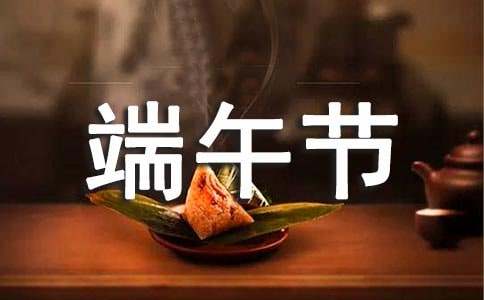- 相关推荐
端午节手抄报内容英文
端午节手抄报内容英文

端午节的由来(Dragon Boat Festival)
The Dragon Boat Festival, also called Double Fifth Festival, is celebrated on the fifth day of the fifth moon of the lunar calendar. It is one of the most important Chinese festivals, the other two being the Autumn Moon Festival and Chinese New Year.
The origin of this summer festival centers around a scholarly government official named Chu Yuan. He was a good and respected man, but because of the misdeeds of jealous rivals he eventually fell into disfavor in the emperor's court.
nable to regain the respect of the emperor, in his sorrow Chu Yuan threw himself into the Mi Low river. Because of their admiration for Chu Yuan, the local people living adjacent to the Mi Lo River rushed into their boats to search for him while throwing rice into the waters to appease the river dragons.
Although they were unable to find Chu Yuan, their efforts are still commemorated today during the Dragon Boat Festival.
端午节,又称为五五节,因为端午节是在农历的五月五日,是三个重要的中国节庆之一,其它两个分别是中秋节和农历新年。
这个节日的由来是古代中国有一位博学多闻的官吏屈原,他是一位爱民而且又受到尊崇的官吏,但是由于一位充满嫉妒的官吏陷害,从此在朝廷中被皇帝所冷落。由于无法获得皇帝的重视,屈原在忧郁的情况下投汨罗江自尽。
由于对屈原的爱戴,汨罗江畔的居民匆忙的划船在江内寻找屈原,并且将米丢入汨罗江中,以平息汨罗江中的蛟龙。即使他们当时并没有找到屈原,但是他们的行为,直到今天在端午节的时候,仍然被人们传颂纪念着。
1、Dragon Boat race Traditions At the center of this festival are the dragon boat races. Competing teams drive their colorful dragon boats forward to the rhythm of beating drums. These exciting races were inspired by the villager's valiant attempts to rescue Chu Yuan from the Mi Lo river. This tradition has remained unbroken for centuries.
2、Tzung Tzu A very popular dish during the Dragon Boat festival is tzung tzu. This tasty dish consists of rice dumplings with meat, peanut, egg yolk, or other fillings wrapped in bamboo leaves. The tradition of tzung tzu is meant to remind us of the village fishermen scattering rice across the water of the Mi Low river in order to appease the river dragons so that they would not devour Chu Yuan.
3、Ay Taso The time of year of the Dragon Boat Festival, the fifth lunar moon, has more significance than just the story of Chu Yuan. Many Chinese consider this time of year an especially dangerous time when extra efforts must be made to protect their family from illness. Families will hang various herbs, called Ay Tsao, on their door for protection. The drinking of realgar wine is thought to remove poisons from the body. Hsiang Bao are also worn. These sachets contain various fragrant medicinal herbs thought to protect the wearer from illness.
端午节最重要的活动是龙舟竞赛,比赛的队伍在热烈的鼓声中划着他们多彩的龙舟前进。这项活动的灵感是来自于当时汨罗江畔的居民,在江中划船救屈原,而这个传统也一直保持了数个世纪。
在端午节时受欢迎的食物就是粽子,粽子是以米包着肉、花生、蛋黄及其它材料,再以竹叶包裹。而粽子的传统则来由于汨罗江边的渔夫,将米丢入江中平息江中的蛟龙,希望他们不要将屈原吃掉。
农历的五月,也就是端午节的这个时节,对中国人而言,除了屈原的故事还有许多其它重要的意义。许多中国人相信五月是一年中容易引发疾病的危险时节,因此必须有许多防备家人生病的措施。许多家庭会将一种特别的植物-艾草挂在门口,作为保护之用,而人们也会挂带香包,它是以含有多种香味的药用植物所做成,也可以保护人们远离疾病。
Duanwu Festival (端午节, Duānwū Jié) is a traditional Chinese festival held on the fifth day of the fifth month of the Chinese calendar. It is also known as the Double Fifth.[citation(引用;引证) needed] It has since been celebrated, in various ways, in other parts of East Asia as well. In the West, it's commonly known as Dragon Boat Festival.
The exact origins of Duan Wu are unclear, but one traditional view holds that the festival memorializes the Chinese poet Qu Yuan (c. 340 BC-278 BC) of the Warring States Period. He committed suicide by drowning himself in a river because he was disgusted by the corruption of the Chu government. The local people, knowing him to be a good man, decided to throw food into the river to feed the fish so they would not eat Qu's body. They also sat on long, narrow paddle boats called dragon boats, and tried to scare the fish away by the thundering sound of drums aboard the boat and the fierce looking carved dragon head on the boat's prow(船头).
In the early years of the Chinese Republic, Duan Wu was also celebrated as "Poets' Day," due to Qu Yuan's status as China's first poet of personal renown(名声名望).
Today, people eat bamboo-wrapped steamed glutinous(粘的) rice dumplings called zongzi (the food originally intended to feed the fish) and race dragon boats in memory of Qu's dramatic death.
端午节手抄报内容英文
端午节(农历5月5日)是中国古老的传统节日,始于春秋战国时期,至今已有2000多年历史。接下来让潍坊亚美欧英语带大家从吃、喝、玩、戴四个方面恶补一下端午节相关的英语。
The Dragon Boat Festival, the 5th dayof the 5th lunar month, has had a history of more than 2,000 years. It isusually in June in the Gregorian calendar.
端午节吃什么?“粽包分两髻,艾束著危冠。旧俗方储药,羸躯亦点丹。”端午节不可不吃的美味食物就是粽子(tsung-tse)。
粽子tsung-tse:Glutinous rice filled with meat, nuts or bean paste and wrapped inbamboo leaves. It is associated with Dragon Boat Festival with historicalmeaning.The custom of eating zongzi is now popular in North and South Korea,Japan and Southeast Asian nations.
端午节喝什么?“樱桃桑椹与菖蒲,更买雄黄酒一壶。”端午节尝试一下雄黄酒吧。Adultsdrink Xiong Huang Wine, which can fend off evil spirits.
端午节玩什么? “鼓声三下红旗开,两龙跃出浮水来。棹影斡波飞万剑,鼓声劈浪鸣千雷。”端午节最应景的节目就是赛龙舟。“Dragon boat racing is an indispensable part of the festival, heldall over the country. As the gun is fired, people will see racers indragon-shaped canoes pulling the oars harmoniously and hurriedly, accompaniedby rapid drums, speeding toward their destination.
端午节戴什么?端午节最有特色的饰物就是香包(sachet)。小孩佩戴香包,传说有避邪驱瘟之意。On Dragon Boat Festival, parents also need to dress their childrenup with a perfume pouch. They first sew little bags with colorful silk cloth, thenfill the bags with perfumes or herbal medicines, and finally string them withsilk threads. The perfume pouch will be hung around the neck or tied to thefront of a garment as an ornament. They are said to be able to ward off evil.
端午节挂什么?“不效艾符趋习俗,但祈蒲酒话升平。”挂艾叶菖蒲hang branches ofmoxa and calamus around the doors of their homes 和悬钟馗像displayportraits of evil's nemesis, Chung Kuei都是为了驱疾避凶,讨个吉利。
【端午节手抄报内容英文】相关文章:
端午节手抄报内容精选06-01
端午节的手抄报内容06-17
端午节手抄报内容11-18
中秋节英文手抄报内容06-12
关于端午节的手抄报内容06-14
端午节手抄报内容参考06-08
有关端午节的手抄报内容06-25
端午节手抄报内容介绍06-01
端午节手抄报内容资料06-01






